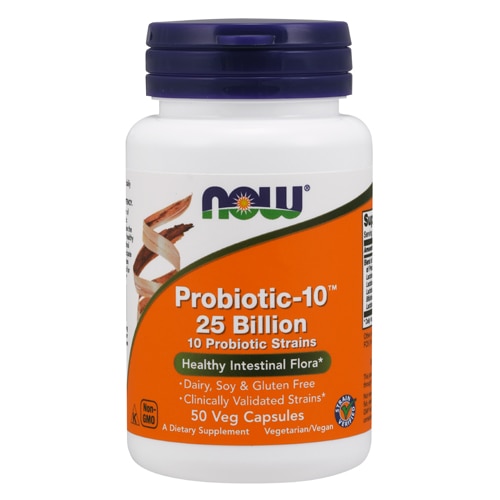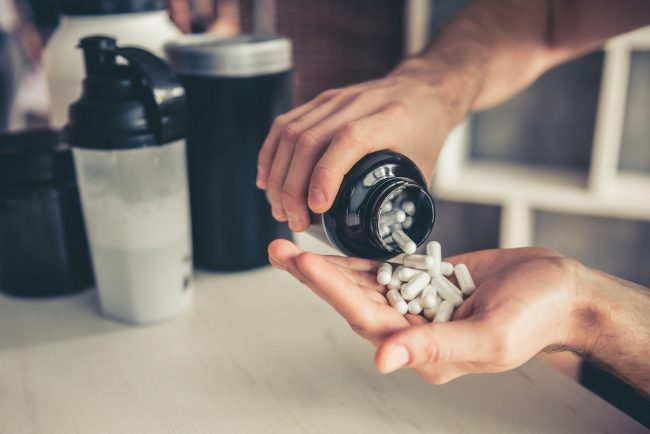Deciding on what supplements you need to take can be a fraught process, inducing choice paralysis even for the most level-headed. To the rescue is this succinct supplement guide for men, designed to make choosing the right formula a no-brainer.
One caveat: Supplements are a slippery slope. They are not a magic bullet, nor a substitute for eating a healthy whole-foods diet. But they can conveniently fill in the gaps created by the hectic pace of our modern lifestyle.
5 best vitamins and supplements for men:
Multivitamin
Why you need it: Even though you may have grown up with parents who told you to eat your vegetables, many still didn’t get the message. And when you’re eating on the run, carbs and protein tend to steal the limelight – and regulate fruits and vegetables to the shadows.
The most recent edition of the Dietary Guidelines for Americans recommends that adults consume 1.5 to two cups of fruit per day and two to three cups of vegetables per day. According to the CDC, only 12 percent of American are meeting the standard for fruit, and even less meet the standard for vegetables. Women eat slightly more produce than men, so there are definitely gaps to be filled. A multivitamin can do that nicely.
What to look for: Make sure you buy a multivitamin for men specifically – one without extra iron. Men don’t need supplemental iron unless they have a condition that causes chronic blood loss. Excess levels of iron could increase your risk of heart disease (a condition called hemachromatosis).
Fish oil
Why you need it: If you’re concerned with heart health, fish oil has been shown to have cardioprotective properties.† That’s not all. Some research even suggests supplementing with fish oil can support other aspects of men’s health.
What to look for: Don’t cheap out on omega fish oil—they are not all created equal. Inexpensive brands of fish oil supplements taste like fish and can leave you with smelly burps all day long. High-quality fish oil may cost more, but they won’t give you that gnarly aftertaste and tend to offer a greater potency.
Protein powder
Why you need it: Protein powder, in combination with regular exercise, supports lean muscle mass. A recent review of scientific research suggests that men who ate more protein while weight training developed larger, stronger muscles than those who did not.
But after a certain point, more protein gives diminishing returns. The sweet spot for protein intake turned out to be about 1.6 grams of protein per kilogram of body weight per day. For example, a 175-pound man would shoot for about 130 grams of protein daily.
What to look for: For muscle growth, choose a protein powder that your body can easily absorb and utilize. Typically, the body absorbs whey the quickest, but a protein blend of peptides and isolate may be most effective. According to MuscleTech, their Nitro-Tech™ Performance Series protein powder builds 70 percent more lean muscle than regular whey.† Or, you may want to try a whey and casein mixture, which may help create a more sustained release of amino acids and promote a sense of fullness over a longer period of time.
Vitamin D
Why you need it: Most people should consider a vitamin D supplement, unless you have a condition that would preclude you. The prevailing wisdom suggests vitamin D is essential to maintain healthy bones and teeth.†
Now that people have gotten savvier about slathering on sunscreen, getting enough vitamin D through sun exposure (you need 20 minutes of exposure over 50 percent of your body) is more challenging. While some experts think vitamin-D-deficiency rates are exaggerated, other studies report that 40 percent of North Americans are deficient in this vitamin.
What to look for: Vitamin D3 is the preferred form – the same form of the nutrient you’re your body manufactures. Opinions vary widely on the recommended dose, which tends to hover between 400 to 1000 IU. If you suspect you might be deficient, get your blood tested to assess your levels and needs. Remember that during the summer, when sunshine is plentiful and clothing less so, you can adjust your daily serving accordingly.
Probiotics
Why you need it: Probiotics are helpful bacteria that optimize your gut flora. Your doctor may have recommended a probiotic if they prescribed you an antibiotic, as antibiotics tend to throw off your body’s natural balance of good and bad bacteria. But even if you aren’t taking an antibiotic, probiotics can be beneficial for daily use.
What to look for: Your gut is home to a variety of probiotic strains, which is why it’s a good idea to choose a supplement with an equally diverse offering of strains. It’s also important to get sufficient amounts of probiotics, or colony-forming units (CFU). You need to do your due diligence, though. Some probiotics may be effective at dosages of 1–2 billion CFU per day, while others may necessitate at least 25 billion CFU to achieve the desired effects.
†These statements have not been evaluated by the Food and Drug Administration. These products are not intended to diagnose, treat, cure or prevent disease.




